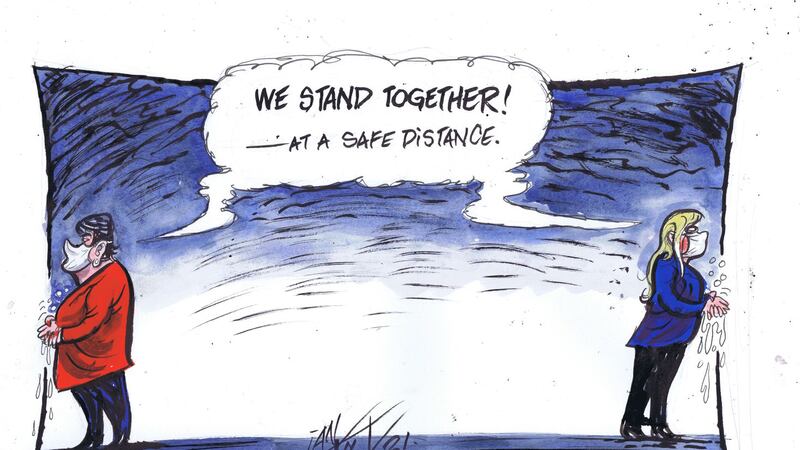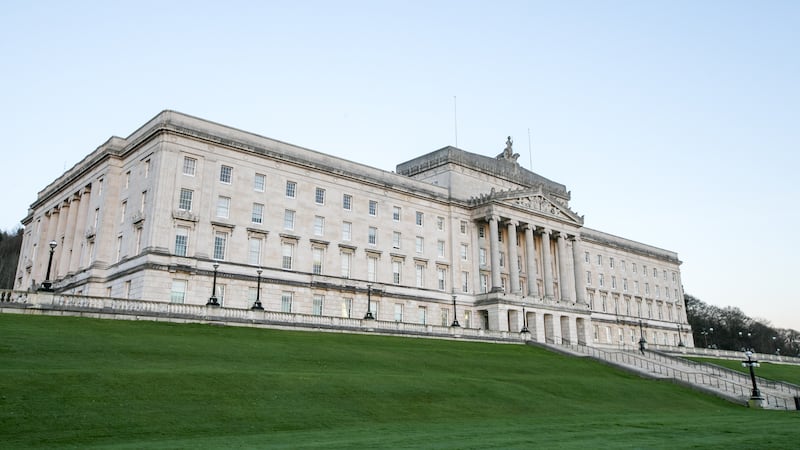AFTER a brief honeymoon period, Stormont's newly-restored executive is having a baptism of fire.
It was only in January that devolution returned following a three-year absence.
Past disagreements were set aside as ministers began work on delivering the 'New Decade, New Approach' agreement.
But that lengthy list of pledges has plummeted in priority due to the all-encompassing coronavirus crisis threatening lives and livelihoods.
It has also brought to an end the five-party executive's initial state of harmony, particularly over schools.
On Thursday evening last week, executive ministers gave a press conference in which, standing side-by-side, First Minister Arlene Foster and Deputy First Minister Michelle O'Neill displayed a united front on how Northern Ireland would tackle Covid-19.
Despite the closure of schools in the Republic, the press were told those in the north would not be shut at that stage.
But in a u-turn the following morning, Sinn Féin's Ms O'Neill called for the immediate closure of all schools.
The SDLP followed suit, but the DUP and UUP maintained that closing schools would ignore advice from health experts.
Stormont eventually announced on Wednesday that schools would be closed, but Ms O'Neill appeared on BBC Radio Ulster yesterday saying that education minister Peter Weir's advice about arrangements for the children of key workers had "led to more confusion".
This came only shortly after Mrs Foster appeared on the same morning programme insisting that the power-sharing executive was "united".
Political commentator Chris Donnelly said there has been a "failure to really get to grips in terms of communication".
"People have been making a contrast with the more decisive steps taken by Taoiseach Leo Varadkar and the administration in the south, and even the almost prime ministerial address to the nation, which was seen as striking the right tone," he said.
"There has been a sense that the executive, it hasn't gelled together yet."
Mr Donnelly acknowledged the "unprecedented situation" and the difficulties of the north's "enforced coalition".
But he added: "I think that inability so far to keep things in-house to get them agreed, before putting out an agreed public face which sings from the same hymn sheet, would not inspire confidence."
Green Party leader Clare Bailey claimed departmental policies have been "disjointed to date, most notably around the schools closure issue", but she welcomed the executive's push for a basic income.
People Before Profit MLA Gerry Carroll described the response as a "shambles", and called for greater financial measures to support workers.
"Mixed messaging has caused confusion, at a time when the public needs reassurance," he said.
TUV leader Jim Allister said: "The confusion in relation to school closures is indicative of the dysfunctionalism of the executive."
Stormont has once again found itself caught between Britain and the south, with unionists accused of unquestioningly following London and nationalists Dublin.
Irish News columnist Brian Feeney said there have been mixed messages and the "abject adherence to what's going on in Britain has been extremely annoying".
He warned the disagreements were "a sign of things to come", adding: "It's not united, despite what they say."








